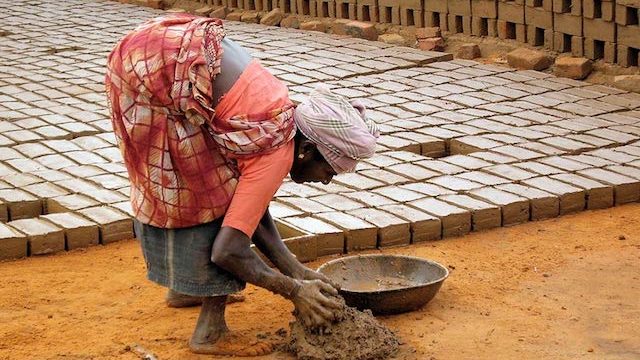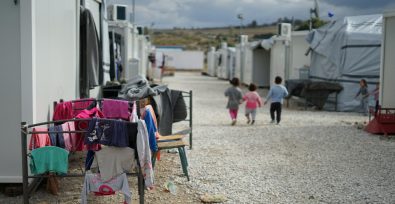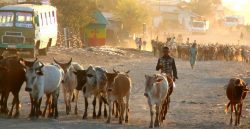Indian Minister for Women & Child Development Smt Maneka Gandhi is likely to table India’s new anti-trafficking bill in the coming weeks during the monsoon session of parliament.
However, as Prabha Kotiswaran, a lecturer in Criminal Law at King’s College London, explains, the The Trafficking of Persons (Prevention, Protection and Rehabilitation) Bill 2018 has several weaknesses that need to be fixed if India is to truly become a leader in South Asia in combatting trafficking.
Related Campaign: Help stop domestic slavery in Delhi.
Notably, the bill does spell out several specific forms of “aggravated” human trafficking that range from trafficking for bonded labor to trafficking that causes a life-threatening illness. Trafficking would be punishable by “rigorous imprisonment for not less than 10 years and extendable to life imprisonment and (ii) liable to a fine of no less than 1 lakh rupees.”
Yet Kotiswaran points out that this bill embraces a “law and order” approach to trafficking wherein “Prevention is a code word for high levels of surveillance and “vulnerability mapping” by the District Anti-Trafficking Committee (DATC). Moreover, “police officers can, on mere suspicion that someone is being trafficked, conduct a raid and rescue operation.”
Kotiswaran also writes in Open Democracy that victims are forgotten in the current version of the bill:
In previous drafts of the bill victims’ rights were robustly protected. For example, the rehabilitation fund was entitled to a budgetary allocation from the central government. The government was to bring out rules to ensure the accountability of the agencies in generating, disseminating and utilising funds from the rehabilitation fund.
The DATC was required to visit protection and rehabilitation homes at least once a month. The victim could be reimbursed for travel to a trial. The victim was required to be given timely notice of trials; had the ability to summon production of materials from parties and be heard on matters relating to conviction, sentencing, and parole.
Protection for the victim was to be reviewed periodically by the government and the government was required to take immediate action in respect of any complaint relating to harassment of the victim, witness or informant and pass appropriate orders on the very same day. Sadly, none of these provisions have been retained in the current bill.
Another issue with the bill according to Kotiswaran is that victims of trafficking are not fully protected from criminalization. In its current form, the bill exempts victims from criminal liability only for “serious offences (punishable with death, life imprisonment or imprisonment for 10 years) IF he/she committed or attempted the act under coercion/compulsion/intimidation/threat/undue influence AND where the victim has reasonable apprehension of death/grievous hurt/injury to himself/herself or a person he may be interested in.”
This is a narrower protection that what is spelled out in the Indian Penal Code, which allows the duress defense argument to apply in “all offences except for murder and for offences against the state punishable with death.”
Take Action: Help stop domestic slavery in Delhi.








Freedom United is interested in hearing from our community and welcomes relevant, informed comments, advice, and insights that advance the conversation around our campaigns and advocacy. We value inclusivity and respect within our community. To be approved, your comments should be civil.